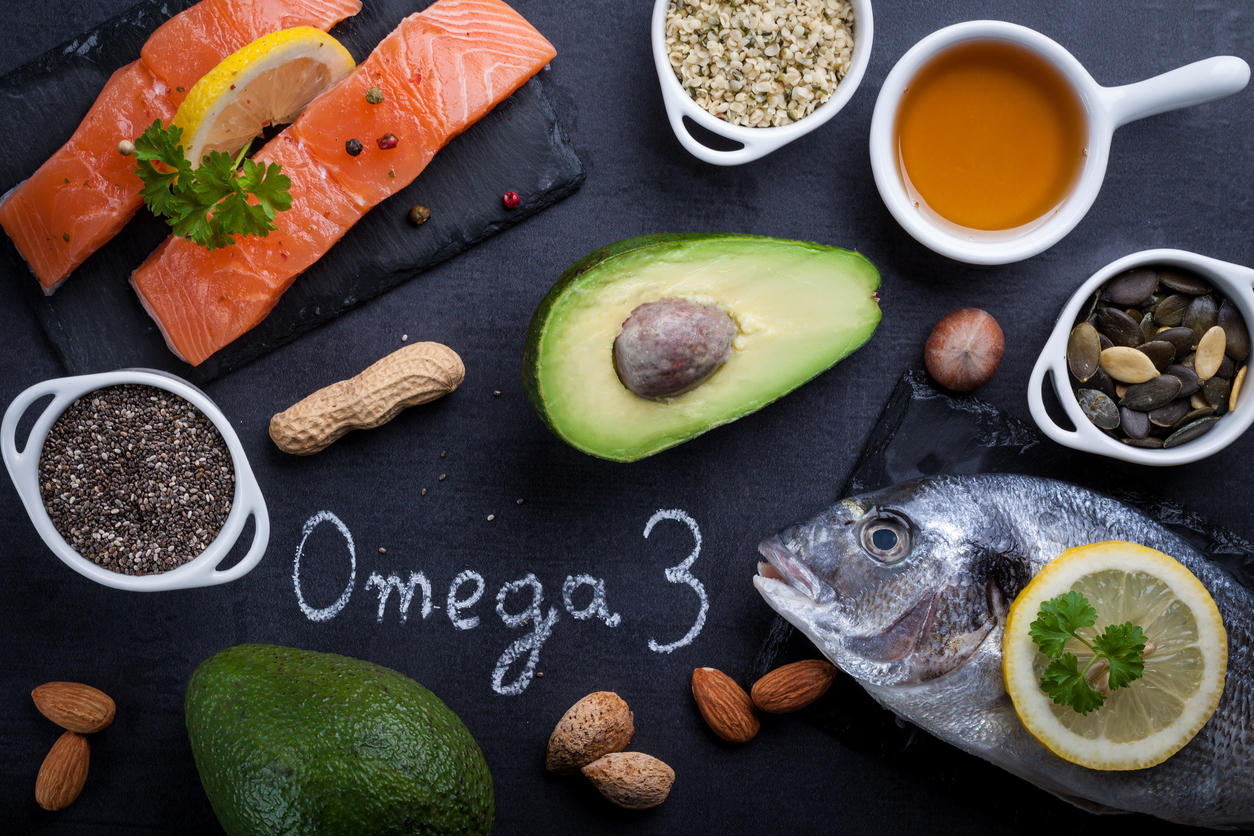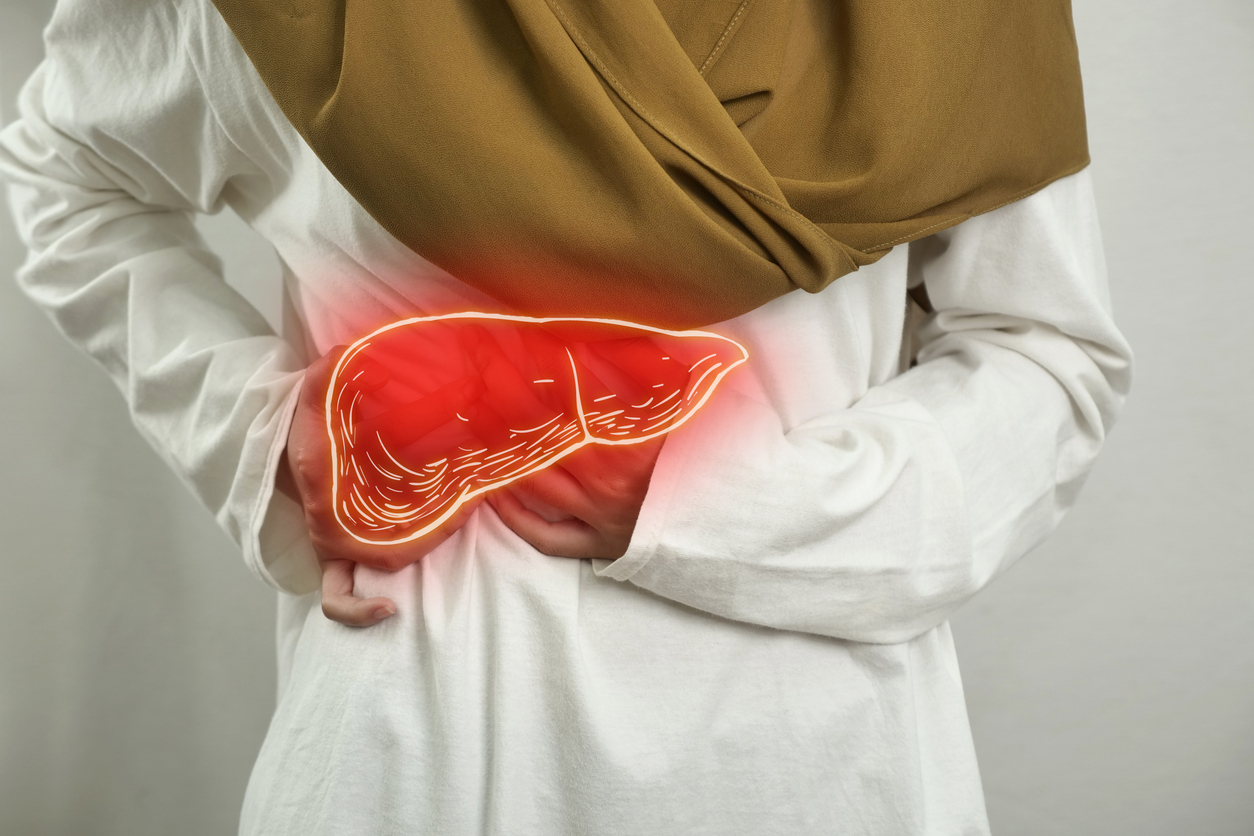2025-11-03
Omega-3 fatty acids: a nutritional lever against prostate cancer
Oncology
By Lila Rouland | Published on November 3, 2025 | 3 min read
Prostate cancer is the second most common malignant tumor in men and the fifth leading cause of cancer-related death worldwide. Despite therapeutic advances, prevention and mortality reduction strategies remain limited. Among modifiable factors, diet has attracted growing interest. In particular, polyunsaturated omega-3 fatty acids (EPA, DPA, DHA) have potential anti-inflammatory and anticancer properties.
However, previous studies have reported contradictory results, and there are few large-scale longitudinal data on the dose–response relationship between omega-3 intake and prostate cancer outcomes. The aim of this study was to evaluate the impact of dietary omega-3 consumption on the incidence and mortality of prostate cancer, using data from the PLCO Cancer Screening Trial, a major U.S. prospective cohort.
The study included 30,552 men aged 55 to 74 years, followed for a median of 7 years. Omega-3 intake (EPA, DPA, DHA) was assessed using a validated dietary questionnaire (DHQ), and risks were analyzed with Cox regression models, adjusted for major confounding factors (age, medical history, BMI, PSA, lifestyle, etc.).
Results showed a linear inverse relationship between omega-3 consumption and overall prostate cancer risk (highest vs. lowest quintile: HR = 0.90, 95% CI: 0.81–1.00; p = 0.053), though this association lost significance after full adjustment.
For prostate cancer mortality, a U-shaped nonlinear relationship was observed (p for nonlinearity = 0.009). The risk of death decreased significantly for intakes between 0.15 and 0.40 g/day, with an HR of 0.67 for the 2nd vs. 1st quintile (p = 0.011). However, intakes above 0.4 g/day appeared to increase risk again, with an HR of 0.70 in the 5th quintile (p = 0.021).
These findings suggest a protective effect at moderate doses, but potentially harmful effects at high doses, possibly due to hormonal interactions or an imbalance between omega-3 and other lipids (such as omega-6).
This work confirms the potential protective role of moderate omega-3 intake on prostate cancer–related mortality, while advising caution with high doses. The anti-inflammatory effects of omega-3s, their modulation of COX-2 and NF-κB pathways, and their ability to induce apoptosis and autophagy support these biological observations.
However, the study has limitations: self-reported dietary data, analyses based on a single measurement, a predominantly older white population, and no distinction between food sources and supplements. The authors recommend randomized controlled trials to clarify clinical recommendations.
In practice, moderate omega-3 consumption (especially from fatty fish and marine oils) may help reduce the risk of prostate cancer progression and death, particularly among at-risk individuals (older age, family history, overweight). However, intake above 0.4 g/day does not appear beneficial and may warrant individualized monitoring.
About the author – Lila Rouland
With dual expertise in science and marketing, Lila brings her knowledge to the service of healthcare innovation. After five years in international academic research, she transitioned into medical and scientific communication within the pharmaceutical industry. Now working as a medical writer and content developer, she is committed to highlighting scientific knowledge and conveying it to healthcare professionals with clarity and relevance.
Prostate cancer is the second most common malignant tumor in men and the fifth leading cause of cancer-related death worldwide. Despite therapeutic advances, prevention and mortality reduction strategies remain limited. Among modifiable factors, diet has attracted growing interest. In particular, polyunsaturated omega-3 fatty acids (EPA, DPA, DHA) have potential anti-inflammatory and anticancer properties.
However, previous studies have reported contradictory results, and there are few large-scale longitudinal data on the dose–response relationship between omega-3 intake and prostate cancer outcomes. The aim of this study was to evaluate the impact of dietary omega-3 consumption on the incidence and mortality of prostate cancer, using data from the PLCO Cancer Screening Trial, a major U.S. prospective cohort.
What dose of Omega-3 truly protects the prostate?
The study included 30,552 men aged 55 to 74 years, followed for a median of 7 years. Omega-3 intake (EPA, DPA, DHA) was assessed using a validated dietary questionnaire (DHQ), and risks were analyzed with Cox regression models, adjusted for major confounding factors (age, medical history, BMI, PSA, lifestyle, etc.).
Results showed a linear inverse relationship between omega-3 consumption and overall prostate cancer risk (highest vs. lowest quintile: HR = 0.90, 95% CI: 0.81–1.00; p = 0.053), though this association lost significance after full adjustment.
For prostate cancer mortality, a U-shaped nonlinear relationship was observed (p for nonlinearity = 0.009). The risk of death decreased significantly for intakes between 0.15 and 0.40 g/day, with an HR of 0.67 for the 2nd vs. 1st quintile (p = 0.011). However, intakes above 0.4 g/day appeared to increase risk again, with an HR of 0.70 in the 5th quintile (p = 0.021).
These findings suggest a protective effect at moderate doses, but potentially harmful effects at high doses, possibly due to hormonal interactions or an imbalance between omega-3 and other lipids (such as omega-6).
What nutritional strategy against prostate cancer?
This work confirms the potential protective role of moderate omega-3 intake on prostate cancer–related mortality, while advising caution with high doses. The anti-inflammatory effects of omega-3s, their modulation of COX-2 and NF-κB pathways, and their ability to induce apoptosis and autophagy support these biological observations.
However, the study has limitations: self-reported dietary data, analyses based on a single measurement, a predominantly older white population, and no distinction between food sources and supplements. The authors recommend randomized controlled trials to clarify clinical recommendations.
In practice, moderate omega-3 consumption (especially from fatty fish and marine oils) may help reduce the risk of prostate cancer progression and death, particularly among at-risk individuals (older age, family history, overweight). However, intake above 0.4 g/day does not appear beneficial and may warrant individualized monitoring.
Read next: Can a plant-based diet slow tumor progression by limiting amino acids?
About the author – Lila Rouland
Doctor of Oncology, specialized in Biotechnology and Management

Last press reviews
Liver, sugar, and pills: who's in control?

By Ana Espino | Published on February 4, 2026 | 3 min read<br>
Endometrial cancer: Is PARP bringing new hope?

By Ana Espino | Published on February 3, 2026 | 3 min read<br>
